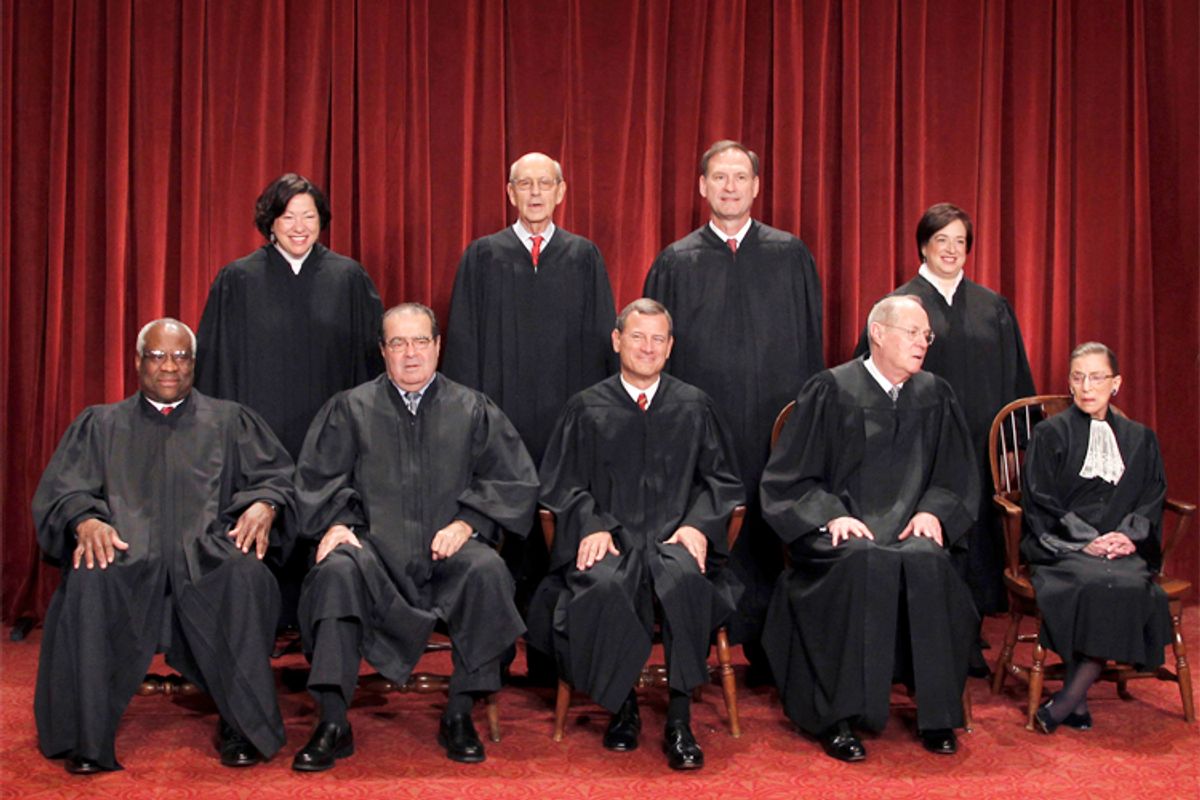The Supreme Court announced on Tuesday that it would hear a pair of cases on whether or not corporations may refuse to provide female employees with contraceptive coverage based on the religious beliefs of the corporation's owners, taking up one of the most contested provisions of the new healthcare law and setting the stage to issue a potentially expansive ruling on so-called corporate personhood.
The first of the two cases involves Hobby Lobby, an Oklahoma-based crafts store that challenged the mandate -- and won -- in a lower court. The second case is an appeal from Conestoga Wood Specialties Corp., a Pennsylvania company that had its claim against the mandate rejected in a lower court. At issue in both cases is the provision of the Affordable Care Act requiring most for-profit employers to offer comprehensive health insurance to their employees, including a comprehensive contraceptive benefit. Both Hobby Lobby and Conestoga have argued that the provision is a violation of the owners' -- and thus the corporations' -- religious beliefs.
At issue, then, is whether or not a corporation can in fact have religious beliefs, and if those beliefs should be protected at the expense of the beliefs of their employees.
“The corporations that brought these cases have views that are far outside the mainstream, and the outcome of these cases could have extreme consequences for millions of Americans," Cecile Richards, president of Planned Parenthood Federation of America, said in response to the news. "For the first time ever, the court could decide that corporations have the right to opt out of a legal requirement -- based entirely on the personal beliefs of their owners."
"The right to religious freedom belongs to individuals, not for-profit institutions,” said Nancy Northup, president and CEO of the Center for Reproductive Rights. “These for-profit companies are no more entitled to deny women insurance coverage for essential health care than they are to dictate how any of us can and cannot spend our paychecks.”
But the 10th Circuit Court of Appeals, in its ruling in the Hobby Lobby case, suggested it believes that the Supreme Court will rule to protect the so-called religious expression of for-profit corporations, citing the 2010 Citizens United decision as an example of the court defining corporate personhood. “We see no reason the Supreme Court would recognize constitutional protection for a corporation’s political expression but not its religious expression," the court wrote.
Reproductive justice advocates are watching the case closely, predicting the decision will have far ranging consequences beyond women's health.
“If the Supreme Court decides for bosses rather than for women’s health, far-reaching consequences could result," Marcia D. Greenberger, Co-President of the National Women’s Law Center noted. "Women could find their bosses not only interfering in their private reproductive health care decisions, but other care as well. Bosses have no business meddling in their employees’ deeply personal health care decisions, and existing legal precedents should lead the Supreme Court to affirm the laws’ protection that women need and deserve."

Shares